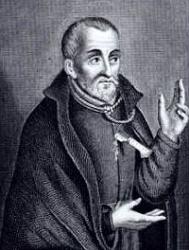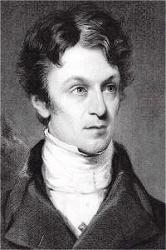Planning worship?
Check out our sister site, ZeteoSearch.org,
for 20+ additional resources related to your search.
- |
User Links
Search Results
A voice upon the midnight air
Author: J. Martineau Appears in 44 hymnals Hymnal Title: Worship Song Topics: The Lord Jesus Christ His Passion Used With Tune: ST. CROSS
A voice upon the midnight air
FEDERAL STREET
Appears in 633 hymnals Composer and/or Arranger: H. K. Oliver Hymnal Title: Jubilate Deo Incipit: 33343 55434 44334 Used With Text: A voice upon the midnight air
FEDERAL STREET
A voice upon the midnight air
Author: James Martineau Hymnal: A Book of Hymns and Tunes #124 (1860) Hymnal Title: A Book of Hymns and Tunes Languages: English
A voice upon the midnight air
“Let This Cup Pass From Me.”
Author: Anonymous Hymnal: A Book of Hymns for Public and Private Devotion (15th ed.) #131 (1866) Meter: 8.8.8.8 Hymnal Title: A Book of Hymns for Public and Private Devotion (15th ed.) First Line: A voice upon the midnight air Lyrics:
A voice upon the midnight air,
Where Kedron’s moonlit waters stray,
Weeps forth in agony of prayer,
“O Father, take this cup away!”
Ah, thou who sorrow’st unto death,
We conquer in thy mortal fray;
And earth for all her children saith,
“O God, take not this cup away!”
O Lord of sorrow, meekly die;
Thou’lt heal or hallow all our woe;
Thy peace shall still the mourner’s sigh;
Thy strength shall raise the faint and low.
Great chief of faithful souls, arise;
None else can lead the martyr band,
Who teach the soul how peril flies,
When faith, unarmed, uplifts the hand.
O King of earth, the cross ascend;
O’er climes and ages ’tis thy throne;
Where’er thy fading eye may bend,
The desert blooms and is thine own.
Thy parting blessing, Lord, we pray;
Make but one fold below, above;
And when we go the last, lone way,
O, give the welcome of thy love.
Languages: English
“Let This Cup Pass From Me.”
A voice upon the midnight air
Author: Anonymous Hymnal: A Book of Hymns for Public and Private Devotion. (10th ed.) #131 (1848) Hymnal Title: A Book of Hymns for Public and Private Devotion. (10th ed.) Languages: English
A voice upon the midnight air
Anonymous
Hymnal Title: A Collection of Hymns, for the Christian Church and Home Author of "A voice upon the midnight air" in A Collection of Hymns, for the Christian Church and Home In some hymnals, the editors noted that a hymn's author is unknown to them, and so this artificial "person" entry is used to reflect that fact. Obviously, the hymns attributed to "Author Unknown" "Unknown" or "Anonymous" could have been written by many people over a span of many centuries.
Anonymous
Thomas Campion

1567 - 1620 Hymnal Title: Hymns of the Spirit for Use in the Free Churches of America Composer of "BABYLON'S STREAMS" in Hymns of the Spirit for Use in the Free Churches of America Campion, Thomas, born c. 1567, d. 1619, and buried at St. Dunstan's in the West, London, March 1, 1619. He was a physician, poet, and musician, but his reputation rests mainly on his poetical works. These include various Masques performed before James I. and other noble personages. Of these some rare copies are in the British Museum. His Observations in the Art of English Pœsie, &c, was published in 1602, and his New Way of Making four parts in Counter-point, &c, 1620. Of his poems, five are given by Palgrave in his Treasury of Sacred Song, 1889. His connection with hymnody is very slight, and nothing by him is now in common use.
--John Julian, Dictionary of Hymnology, New Supplement (1907)
Thomas Campion
James Martineau

1805 - 1900 Hymnal Title: Jubilate Deo Author of "A voice upon the midnight air" in Jubilate Deo Martineau, James, LL.D., D.D., born at Norwich, April 21, 1805, the son of a manufacturer and wine merchant of Huguenot descent. After four years at the Norwich grammar school, and two as a pupil of Dr. Lant Carpenter, at Bristol, and a short experience in the shops of a mechanical engineer at Derby, he entered as a Divinity student in Manchester College, York. His first ministry was at Eustace St. Chapel, Dublin [1828-32], as assistant to his cousin, the Rev. Philip Taylor. From 1832 to 1857 he was in Liverpool, as minister of the congregation meeting in Paradise St. Chapel, and from 1849 in the new Hope St. Church. In 1840 he was appointed professor of Mental and Moral Philosophy and Political Economy in Manchester New College and in 1857 followed the college to London, becoming its Principal in 1869 and resigning in 1885. On settling in London he became also minister of Little Portland St. Chapel, first in conjunction with the Rev. J. J. Taylor, and afterwards alone till his resignation in 1872. He received the degree of D.C.L. from Oxford in 1888. Died Jan. 11, 1900.
The chief of Dr. Martineau's works hitherto published are four volumes of sermons, Endeavours after the Christian Life, 2 vols., 1843 and 1847; Hours of Thought on Sacred Things, 2 vols., 1876 and 1879; Studies of Christianity, 1858; Essays Philosophical and Theological 2 vols., 1866 and 1868, collected from various Reviews; A Study of Spinoza, 1882; and Types of Ethical Theories, 2 vols., 1885, 2nd ed. 1886. These contain the substance of his teaching as a Christian minister and an expounder of a spiritual philosophy of religion. By early training and matured conviction a Unitarian of the Catholic and spiritual type, Dr. Martineau has served not only the little group of churches with which he is immediately connected, but the Church Universal by his gifts of sympathy and insight into the deepest questions of human life. He has strengthened the foundations of faith in the light of modern knowledge, and added treasures, the worth of which have yet to be fully measured, to the rich store of the devout literature of the Church.
The Catholic spirit and deeply Christian temper impressed upon all Dr. Martineau's literary work give their distinctive character to the three hymn-books which he has edited, viz.:—
(1) A Collection of Hymns for Christian Worship. Dublin: Printed for the Congregation of Eustace Street 1831. This collection of 273 hymns already clearly indicates the principles of selection afterwards to be more fully worked out. It was made for the use of a society, "whose worship is paid solely to the God and Father of our Lord and Saviour Jesus Christ," and in adopting the hymns of Dr. Watts and others, such changes are made as are required by theological consistency; but the preface pleads for a wider latitude of choice than had been usual in older selections, "bringing all the resources of lyric poetry (the poetry of the affections) into the service of religion." There are 18 hymns by Bishop Heber introduced, and special mention is made of his merit in ”first liberalizing the style of poetry designed for our churches."
During his ministry in Liverpool Dr. Martineau published:—
(2) Hymns for the Christian Church and Home. Collected and edited by James Martineau. London, 1840. This with his own congregation took the place of the old Paradise St. collection of 1815, and was quickly recognised as pre-eminent among the books in use among the non-subscribing churches.
Dr. Martineau's last collection was:—
(3) Hymns of Praise and Prayer, collected and edited by James Martineau, LL.D., D.D. “Vatum suspiria solatium Ecclesiae." London, 1873.
Dr. Martineau's own hymns:—
1. A Voice upon the mid-night air. Good Friday
2. Thy way is in [on] the deep, 0 Lord. Trust.
3. "Where is your God?" Inward witness of God.
They have been hitherto published anonymously, but the authorship is now acknowledged. Nos. 1, 2, appeared first in his Hymns, &c, 1840, and 3 in his Hymns, &c.,1873. They are also found in other collections in Great Britain and America. [Rev. Valentine D. Davis, B.A.]
-- John Julian, Dictionary of Hymnology (1907)
James Martineau


 My Starred Hymns
My Starred Hymns


